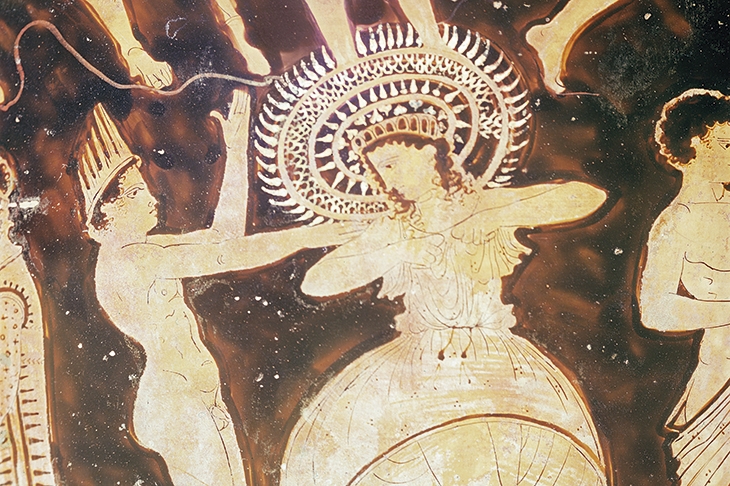History is full of ‘ifs’ and the Spartan story fuller than most. If the 300 had not made their famous stand against a vast Persian army at Thermopylae in 480 BC, or if Helen of Troy, originally from Sparta, had not been abducted, we might not remember them today. If their young men had not been brought up so strictly the word ‘spartan’ might not have entered our vocabulary; nor, had they not valued brevity in an age that revered oratory, the word ‘laconic’ — from Laconia, a Spartan province. And if the Spartans had not remained such an enigma, there would be no need for this book.
It is Thermopylae that speaks loudest to us. The heroism of Leonidas and his Spartan holding force, prepared to give their lives to save their people from Persian servitude, remains a model of sacrifice, as Byron recognised when, writing of the Greeks’ 19th-
century struggle for independence, he longed for ‘A remnant of our Spartan dead’ to make ‘a new Thermopylae’.
Spartan women were renowned for their freedom, beauty, wit, promiscuity and rump jumps
Andrew J. Bayliss, university lecturer in ancient Greek history, has been fascinated by the Spartans ever since he heard the Thermopylae story at school, and has spent much time piecing together a portrait of them from the scraps that time has strewn — artefacts and sayings, and the words of the many other Greeks who looked on (whose admiration was often mixed with distaste).
It soon becomes clear that while there was much to admire about the Spartans, they were not without their dark secrets. They did indeed live spartan lives. All males were educated in herds by the state until their 30th year, the system, echoing through British public schools, being light on blankets and heavy on deprivation, physical activity and corporal punishment, with regular naked inspections to ensure the young men were not putting on weight.







Comments
Join the debate for just £1 a month
Be part of the conversation with other Spectator readers by getting your first three months for £3.
UNLOCK ACCESS Just £1 a monthAlready a subscriber? Log in